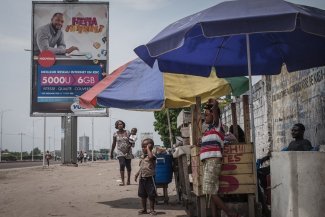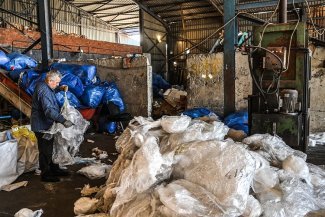Abusive employers, unpaid work, forced labour and deadly attacks on union officials that go uninvestigated are among a litany of complaints in a Somali trade union’s annual report that calls on the country’s new president to actively fight a climate of impunity.
The Somalia Trade Union and Human Rights Report for 2016, released 23 February by FESTU, the Federation of Somali Trade Unions, urgently calls on the international community to pressure the Somali government to take action.
“This report comes out at a time when grave and unparalleled human rights violations were committed against trade unions,” Omar Faruk Osman, FESTU general secretary, and himself a target of past government intimidation, tells Equal Times.
Osman says President Mohamed Abdullahi Farmajo, who took office in February, won on a platform “to end injustice, restore hope in the federal governance system, end abuses of human rights and spearhead social justice. Our utmost priority is for President Farmajo to urgently tackle three: injustice, insecurity and impunity.”
Unions, workers targeted
Members and leaders of FESTU were targeted “a number of times” in 2016. “Workers in the sectors of agriculture, hotels and media are mostly subjected to constant harassment, intimidation and even deadly attacks,” the report says.
The report says more than 113 workers were killed and more than 500 wounded in 2016, according to cases recorded by FESTU affiliates. Most of those who died were killed in planned terror attacks targeting hotels and restaurants. It was not clear how many of the attacks were linked to al-Shabaab extremists.
Al-Shabaab targeted a number of people working for government institutions through targeted assassinations, the report says. Many government employees received death threats because of their government employment.
More than 30 journalists were arrested, it says. “Working journalists opt to practice self-censorship to avoid retaliation by corrupt officials, criminal elements, Islamist extremists and members of illegal armed groups.”
The report says the government “has failed to investigate and punish the vast majority of acts of violence and threats against workers and trade union activists.”
Osman, who is also secretary general of NUSOJ, the Somali journalists’ trade union, was repeatedly summoned for questioning about his union activities. An attorney general’s document, included in the FESTU report, contended Osman was “a threat to peace and stability of the country”.
Managers in the public and private sector “have pressured workers to leave trade unions, sometimes under threat of dismissal. For those government officials and managers, no union can exist without their approval,” the report says.
Somali workers also face growing employer demands for forced overtime, the report says. “In these situations, workers are required to continue working beyond their agreed-upon workday, frequently, without notice and without being paid.”
According to one case cited in the report, a worker who demanded a written statement of particulars of his employment was sacked just for asking three times because the manager said: “You want to tie our hands with needless restrictions and obligations. The door is open, get out now.”
Defamation strategy
The FESTU report describes how Somali authorities attempted to prevent a FESTU congress in April 2016, calling it a “false congress”. It says government officials, including ministers, have deemed trade unionists as ‘illegal’ and ‘illegitimate’. Trade union leaders have been accused of being ‘criminals’, ‘troublemakers’ and ‘enemies of the state’.
The report quotes an unnamed government official saying the main target is the head of FESTU, a member of the International Trade Union Confederation (ITUC).
“You kill the snake at the head and then the other union leaders and members will just run away and disappear,” the official at the Ministry of Labour told the federation on condition of anonymity, describing the government’s policy. “If we don’t destroy the head, we know you will bite us so long as the head is alive.”
Acting on a complaint filed by FESTU and NUSOJ, the International Labour Organization (ILO) is asking for a judicial inquiry into the attacks against union leaders and members. The ILO Committee on Freedom of Association has repeatedly asked the Somali government to ensure the safety and security of the leaders and members of FESTU and NUSOJ.
The report says the Somali government “should take immediate steps to fulfil the recommendations of the ILO” concerning the FESTU and NUSOJ complaint.
“By working with international institutions and government officials who are supportive of change, FESTU hopes that 2017 will see the actions and reforms urgently needed to make Somalia safer, more just, and better for all its citizens,” the report says.
International pressure
It also suggests the international community has leverage as donors. “Somalia’s international partners should stress that ensuring international standards on labour rights, in particular the right of workers to associate and trade unions to exist freely and to organise, should be an integral part of any international support and be based on Somalia’s approach as it aspires to receive international support.”
Osman tells Equal Times that international pressure has already had an effect, and hopes it will again. “International solidarity has effectively worked because without them watching and reacting on systematic and instituted abuses that we have endured, free trade unions would be destroyed.”
Says the ITUC-Africa general secretary Kwasi Adu-Amankwah in the report’s introduction: “Attacks and derogatory campaigns against FESTU and its members must cease. Somalia will only achieve democratic rule when it allows trade unions the space and freedom to exist and operate.”









